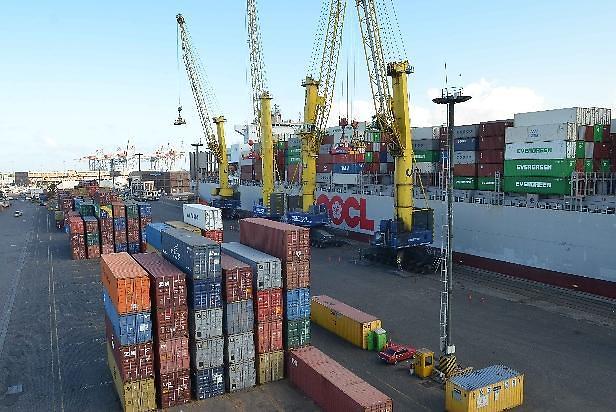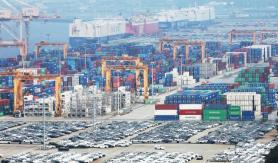
The surplus reached US$6.94 billion last month, down from a revised $7.02 billion in the previous month, according to preliminary data compiled by the Bank of Korea (BOK).
Imports shrank at a faster rate than exports in January due to the oil price fall.
Exports dropped 10.0 percent to $45.52 billion in January from the same month of last year, while imports reached $38.43 last month, down 16.9 percent from a year earlier.
According to the announcement:
- The goods account surplus narrowed to $7.09 billion from $8.32 billion in the previous month.
- The services account deficit widened to $2.44 billion from $1.54 billion a month earlier, due to the worsening of the travel account.
- The primary income account surplus widened to $2.90 billion from $1.18 billion in the previous month, due to an increase in income on the equity account.
- The secondary income account recorded a deficit of $0.62 billion.
The BOK also announced that the financial account recorded a net outflow of $8.24 billion, down from $9.80 billion in the previous month.
- Direct investment recorded a net outflow of $1.00 billion less than the $1.35 billion of the previous month, as foreigners’ direct inward investment increased.
- Portfolio investment recorded a net outflow of $3.62 billion, substantially less than the $6.16 billion of the previous month, as the outflow of foreign investors' securities investment narrowed.
- Financial derivatives posted a net outflow of $0.08 billion.
- Other investment shifted to a net inflow of $0.49 billion from a net outflow of $5.13 billion in the previous month, due to increased borrowings by domestic financial institutions.
- Reserve assets increased by $4.03 billion.
Copyright ⓒ Aju Press All rights reserved.



